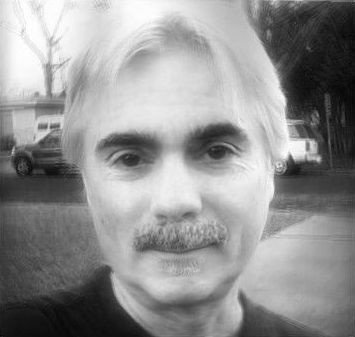“Poetry for Men” and Other Problematic Labels
Rick Belden finds that labeling his poetry only limits the reader’s expectations.
by Rick Belden
I’m not crazy about labels, but I understand that they can be useful and necessary in helping us sort through the mass of information to which we’re all constantly exposed. For some time now, I’ve been struggling with the problem of how best to characterize my writing, as a way of introduction for those who haven’t seen it. Is it poetry for men, men’s poetry, male poetry? Is it survivor poetry? Healing poetry? Recovery poetry? Transformational poetry? Body-centered poetry? Psychospiritual poetry? Poetry therapy? What do these terms actually mean, what do they convey to others about my work, and are they even accurate?
Initially, I was reluctant to call what I was writing “poetry” at all. The use of that word struck me as a bit … I dunno … conceited? Self-important? Pretentious? Preposterous? I wasn’t even sure I knew what poetry was. It seemed to be a lot of things, according to who was writing it and who was reading it, and it struck me as one of those words that’s somehow developed so many different meanings and connotations that it barely means anything at all anymore, like “love” or “god.”
I was also concerned that, for a lot of folks, the word “poetry” can be roughly translated into “something I’m not gonna want to read.” Ultimately, I set all of those concerns aside because I knew that what I was writing certainly wasn’t prose, and I needed to use some sort of recognizable terminology to describe it. So it’s poetry. Okay. What kind of poetry?
Every one of the labels I listed above (poetry for men, survivor poetry, etc.) expresses one very specific aspect of my writing while excluding many others. It reduces the work, in some substantial way, to something far less than what it actually is. There are also connotations and assumptions associated with each of these labels that may or may not be accurate and appropriate in the case of my writing. And that’s something I’d prefer to avoid if I can.
If, for example, I describe my first book, Iron Man Family Outing , as “poetry for men” then I feel like I’m basically telling women, “This book is not for you.” But that’s not the message I want to send, and it’s not true. About half of my readers are women, and they relate to the material just as strongly as the men do. If I characterize my second book, Scapegoat’s Cross, as “poetry for adult survivors of childhood abuse” then those who would not describe themselves in that way might think, “There’s nothing in this book that will speak to me.” But that’s not true either, and it’s not the impression I want anyone to have. While the adult survivor theme is central and very critical to the structure of Scapegoat’s Cross, the scope of the book is much broader, and much more universal, than that.
How do I accurately communicate, with a non-ambiguous label consisting of two or three words, the depth and the breadth, the variety and the richness, the individuality and the universality of the transformational processes I’m attempting to illuminate and share in my writing? I still don’t have an answer. To borrow from Zen, words are “but a finger pointing to the moon.” I guess I’ll just keep trying out all of my fingers until I find the ones that point the best.


